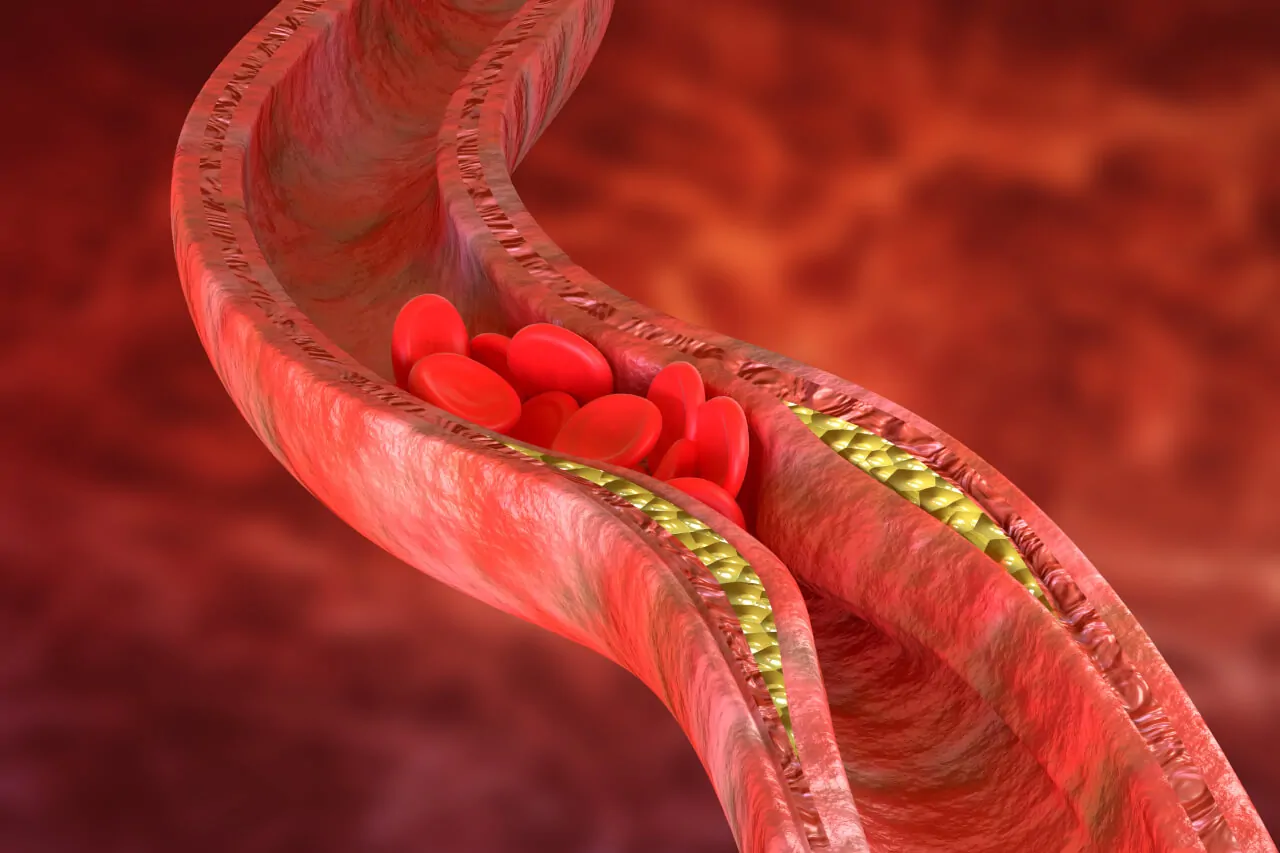Cholesterol
Cholesterol is a waxy, fat-like substance that is found in all cells of the body. It is produced by the liver and is also obtained through certain foods, primarily those that come from animals. Cholesterol plays several important roles in the body, such as being a vital component in the production of hormones, cell membranes, and vitamin D.
Cholesterol is transported in the bloodstream through lipoproteins, which help carry it to various tissues and organs. There are different types of lipoproteins, including LDL (low-density lipoprotein), HDL (high-density lipoprotein), and VLDL (very-low-density lipoprotein).
It is important to maintain a balance of cholesterol levels in the body. While cholesterol is necessary for several bodily functions, having excessively high levels of LDL cholesterol or low levels of HDL cholesterol can increase the risk of cardiovascular diseases.
LDL cholesterol
LDL cholesterol, also known as low-density lipoprotein cholesterol, is a type of cholesterol that is commonly referred to as “bad” cholesterol. It is called “bad” because high levels of LDL cholesterol in the blood can increase the risk of developing cardiovascular diseases such as heart disease and stroke.
cholesterol is produced in the liver and is responsible for delivering cholesterol to various tissues and organs throughout the body. However, when there is an excess of LDL cholesterol in the bloodstream, it can accumulate in the walls of the arteries, forming plaques. These plaques can narrow and harden the arteries, leading to a condition called atherosclerosis, which can restrict blood flow and result in serious health problems.
Effects of high levels of LDL cholesterol
High levels of cholesterol can have several negative effects on the body. Some of the effects of high LDL cholesterol include:
Atherosclerosis
Excess LDL cholesterol in the bloodstream can build up in the arterial walls, forming plaques that can narrow and harden the arteries. This condition, known as atherosclerosis, can restrict blood flow to the heart, brain, and other organs, increasing the risk of heart disease, stroke, and other cardiovascular problems.
Coronary artery disease
When the coronary arteries (arteries supplying blood to the heart) become narrowed or blocked due to the buildup of LDL cholesterol plaques, it can lead to coronary artery disease. This can manifest as chest pain (angina), heart attack, or other heart-related issues.
Stroke
If an artery supplying blood to the brain becomes blocked due to atherosclerosis caused by high LDL cholesterol, it can lead to a stroke. Strokes occur when the brain does not receive enough oxygen and nutrients, causing brain damage and potentially resulting in long-term disabilities or death.
Peripheral artery disease (PAD)
Excessive LDL cholesterol can also affect other arteries in the body, such as those in the legs, arms, and other organs. When these arteries become clogged, it can lead to peripheral artery disease, causing reduced blood flow and potential complications such as pain, numbness, and difficulty walking.
Hypertension
High LDL cholesterol can contribute to the development of high blood pressure (hypertension) by damaging the walls of the arteries and reducing their flexibility. Hypertension increases the workload on the heart and can further increase the risk of heart disease and stroke.
It is important to keep LDL cholesterol levels within a healthy range to reduce the risk of these adverse effects on cardiovascular health.
How to reduce LDL cholesterol levels
To reduce LDL cholesterol levels, here are some lifestyle changes and strategies that can be implemented:
Eat a heart-healthy diet
Opt for a diet that is rich in fruits, vegetables, whole grains, lean protein sources, and healthy fats. Limit the consumption of saturated and trans fats found in fried foods, processed snacks, and fatty meats. Include foods rich in fiber, such as oats, legumes, and nuts.
Choose healthier cooking methods
Instead of frying, try grilling, baking, steaming, or sautéing with minimal oil. Cook with healthier oils like olive oil, canola oil, or avocado oil.
Increase intake of omega-3 fatty acids
Omega-3 fatty acids can help reduce LDL cholesterol levels. Include fatty fish like salmon, sardines, or trout in your diet, or consider taking fish oil supplements (under medical guidance).
Exercise regularly
Engage in moderate aerobic exercise most days of the week. Aim for 150 minutes of moderate-intensity exercise or 75 minutes of vigorous-intensity exercise per week. Regular physical activity can help raise HDL cholesterol (the “good” cholesterol) and lower LDL cholesterol.
Maintain a healthy weight
If overweight, losing excess weight can help lower cholesterol levels. Even a small reduction in weight can make a difference.
Quit smoking
Smoking damages blood vessels and lowers cholesterol. Quitting smoking can improve cholesterol levels and overall heart health.
Limit alcohol consumption
Excessive alcohol intake can increase cholesterol levels. It is recommended to drink in moderation or avoid alcohol altogether.
Manage stress
High levels of stress can impact cholesterol levels. Find healthy coping mechanisms like exercise, yoga, meditation, or relaxation techniques to manage stress effectively.
Consider medication
In some cases, lifestyle modifications alone may not be sufficient to lower LDL cholesterol levels. If recommended by a healthcare professional, cholesterol-lowering medications like statins may be prescribed.
Conclusion
In conclusion, LDL cholesterol, often referred to as “bad” cholesterol, can have detrimental effects on cardiovascular health when present in high levels. It can contribute to the formation of plaque in the arteries, leading to conditions such as atherosclerosis, coronary artery disease, stroke, and peripheral artery disease.
However, through lifestyle changes and strategies, it is possible to reduce LDL cholesterol levels and mitigate the associated risks.
Adopting a heart-healthy diet that includes fruits, vegetables, whole grains, lean proteins, and healthy fats, and limiting saturated and trans fats can positively impact cholesterol levels. Regular physical activity, maintaining a healthy weight, quitting smoking, and managing stress are also important lifestyle factors in reducing cholesterol. In some cases, medication may be prescribed to effectively manage cholesterol levels.
By implementing these changes, individuals can work towards achieving and maintaining optimal LDL cholesterol levels, promoting heart health, and reducing the risk of cardiovascular diseases. It is advisable to consult with a healthcare professional for personalized guidance and recommendations based on individual cholesterol levels and overall health status.
FAQs
What is LDL cholesterol, and why is it considered “bad” cholesterol?
LDL cholesterol is low-density lipoprotein cholesterol, which is considered “bad” because high levels can contribute to plaque buildup in arteries, increasing the risk of heart disease and stroke.
What are the potential risks and health problems associated with high levels of LDL cholesterol?
High levels of cholesterol can lead to atherosclerosis, coronary artery disease, stroke, peripheral artery disease, and hypertension.
How can I determine if my LDL cholesterol levels are high, and when should I get them checked?
Blood tests can measure its cholesterol levels. Regular screenings are recommended, particularly for individuals at higher risk or those with a family history of cardiovascular diseases.
What role does diet play in managing LDL cholesterol levels?
Diet plays a crucial role. A heart-healthy diet includes fruits, vegetables, whole grains, lean proteins, and healthy fats while limiting saturated and trans fats
Are there specific foods to avoid or include in my diet to lower LDL cholesterol?
Avoid foods high in saturated and trans fats, such as fried foods and processed snacks. Include foods rich in fiber, omega-3 fatty acids, and monounsaturated fats found in fish, nuts, avocado, and olive oil.
Can regular exercise help in reducing LDL cholesterol levels, and what types of exercises are recommended?
Yes, regular exercise, both aerobic and strength training, can help lower LDL cholesterol levels. Aim for moderate-intensity exercise for at least 150 minutes per week.
Are there any medications available to lower LDL cholesterol levels, and when are they necessary?
Yes, cholesterol-lowering medications like statins may be prescribed if lifestyle changes are ineffective or for individuals with significantly elevated cholesterol or high cardiovascular risk.





